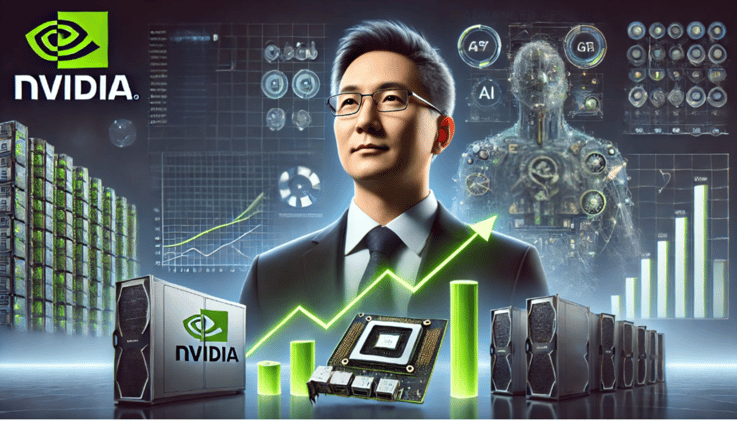Introduction
NVIDIA’s CEO, Jensen Huang, has envisioned a future where artificial intelligence systems possess the ability to "think" like humans—a capability referred to as "reasoning." This vision is built on reducing computing costs while enhancing AI processing capabilities. Huang emphasized that for AI systems to achieve this advanced stage, cost reductions must be a priority.
The Road Ahead
Huang elaborated on how future AI systems will process complex queries through multiple steps and reflect on their conclusions. He compared these systems to current models like OpenAI’s ChatGPT, acknowledging his daily use of such platforms for productivity.
NVIDIA’s Dominance in the AI Chip Market
NVIDIA currently holds a staggering 90% market share in accelerator chips crucial for AI processing. This dominance has enabled the company to expand its product offerings beyond hardware alone, including AI models and software solutions. Huang highlighted this shift as pivotal for accelerating AI adoption across various industries.
Competition on the Horizon
The tech landscape is bracing for intense competition. Data center giants like AWS are developing in-house AI chips, aiming to challenge NVIDIA’s market position. AMD, a long-time rival known for gaming-centric GPUs, has emerged as a key player in the AI space with plans to release advanced AI-focused products.
The Race to Reasoning AI
Huang’s vision of "reasoning" AI represents a significant leap forward, where systems can think and learn like humans. Achieving this milestone will hinge on successfully reducing computing costs while enhancing AI capabilities. NVIDIA’s commitment to advancing chip performance is seen as crucial for making reasoning AI a reality.
Strategic Advancements in Chip Performance
NVIDIA aims to boost its chip performance by up to two or three times annually, all while maintaining cost and energy efficiency. Huang emphasized the importance of these improvements in revolutionizing AI systems’ inference capabilities— enabling them to recognize patterns and draw conclusions more efficiently.
Market Dynamics and Ecosystem Expansion
NVIDIA’s dominance is not just confined to hardware; it extends into software and services. The company has expanded its reach by offering comprehensive computing solutions, including AI models and tools that make AI accessible across industries. This ecosystem-building strategy underscores NVIDIA’s commitment to fostering widespread AI adoption.
Erosion of Market Dominance
While NVIDIA maintains a dominant position in the AI chip market, competitors like AMD are challenging this status quo. AMD’s shift from gaming-centric GPUs to specialized AI chips is part of its broader strategy to establish itself as a key player in the AI space.
The Impact on AI Development
Huang’s vision of reasoning AI signifies a new era where AI systems can handle tasks that currently require human-like thinking. This milestone will not only enhance performance but also ensure affordability and accessibility for broader adoption, setting the stage for future innovations in artificial intelligence.
The Future Timeline and Challenges
As the race intensifies, companies must balance performance improvements with cost reductions to stay competitive. The ongoing development of AI hardware by competitors like AMD and AWS will push the industry towards more efficient solutions, ensuring that reasoning AI becomes a reality sooner than expected.
In conclusion, NVIDIA’s strategic focus on reducing computing costs alongside advancements in chip performance positions it as a leader in shaping the future of AI. With competition from established players and emerging companies alike, the battle for the next generation of intelligent systems will be both fierce and transformative.






